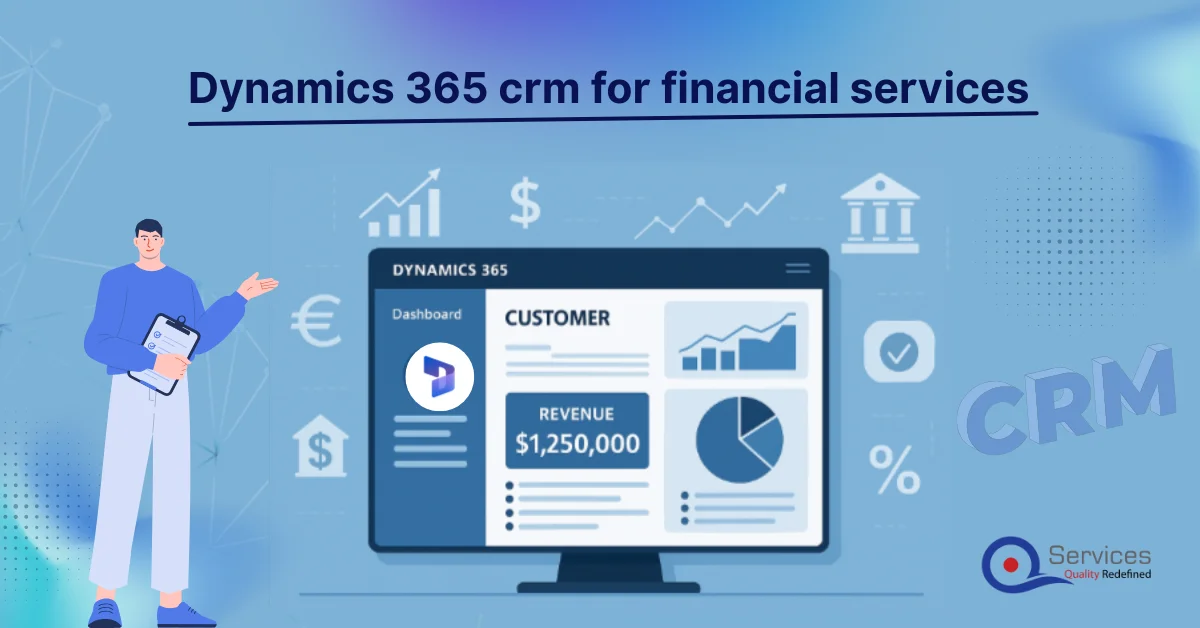
Rewards
.





CANADA
55 Village Center Place, Suite 307 Bldg 4287,
Mississauga ON L4Z 1V9, Canada
Certified Members:
.



Home » Enhancing BFSI Security with Blockchain, Azure, and .NET Core

Key Integration Points
The sector that comprises banking, financial services, and insurance (BFSI) is one of the most vulnerable to cyber threats because of massive volumes of sensitive financial and personal data being handled and processed on a daily basis. Financial institutions including banks, insurance companies, and investment firms engage in a significant volume of transactions, customer records, and confidential financial information. While the world of infinite digitization has created unparalleled convenience for customers, it has, on the other hand, equally opened avenues for cybercriminals to take advantage of. Hence, foolproof security has become more than a need of regulatory compliance; it has become an existential need to retain the trust and operational integrity and financial soundness of the BFSI sector. Whenever security breaches, data leaks, and cyber-attacks happen, the damage they wreak may include financial, reputational, and legal consequences that can be grievous. As such, superior technological solutions are being increasingly put in by financial institutions to bolster security apparatus, provide resilience against cyber threats, and ensure heightened compliance with rigorous regulations.
Blockchain technology, along with Microsoft Azure and .NET Core, aims to provide the ultimate toolkit to secure technologies, protect sensitive data, and enhance risk management in the BFSI arena. With a decentralized and tamper-proof ledger system, the most advanced technology found in blockchain holds the highest level of security pertaining to financial transactions. Through distributed ledger technology, financial bodies can ensure data integrity, fraud prevention, and process streamlining related to, among other things, cross-border payments, identity verification, and contract execution. The very nature of records in a blockchain is that they cannot be changed; therefore, they provide an assurance of the authenticity of transactions, and this feature makes it suitable for regulatory compliance as well. Smart contracts that follow blockchain rules can automate the execution of contract agreements, eliminating dependence on intermediaries while simultaneously minimizing the risk of fraud and human error.
Microsoft Azure is an industry-leading cloud computing platform offering a suite of security features designed for the BFSI industry. Azure protects against cyber attacks with end-to-end encryption, identity and access management, and advanced threat protection. Financial institutions can safely host applications and data in compliance with global regulatory standards through Azure’s robust security frameworks and vast compliance capabilities. Drawing on artificial intelligence (AI) and machine learning (ML) capabilities, it automatically enhances security by detecting anomalies and rapidly responding to them for preemptive threat mitigation. Moreover, Azure’s scalability and flexibility provide the BFSI industry with resilient disaster recovery solutions, ensuring business continuity in the event of cyber incidents.
Blockchain, a decentralized and immutable digital ledger, plays a key role in improving security in the BFSI industry. Some of his most important advantages include:
Blockchain Precludes such unwarranted modifications by recording transactions in such a way that they can neither be modified nor deleted in the future. Thus, these transactions ensure that financial transactions are both transparent and authentic
Passing through a centralized database or storage exposed to online and offline threats and attacks was an ordinary thing in the world of older banking methods. By hosting all transaction data on the various nodes, Blockchain takes out the single point of failure.
Smart Contracts allow independent and safe contracts based on pre-established terms. The safety of these contracts is enhanced as they reduce the chances of fraud or interference by making them occur automatically without human intervention.
Blockchain encryption reduces exposure to hacking and unauthorized access while assuring safe transactions.
Transactions are secured using cryptographic mechanisms incorporated within the blockchain, therefore greatly preventing hacking and unauthorized access.
Get free Consultation and let us know your project idea to turn into an amazing digital product.

Microsoft Azure has an array of cloud security solutions developed for BFSI organizations. Hence they help secure financial data, ensure compliance, and mitigate cyber threats.
Azure Sentinel provides advanced threat detection and response capabilities, giving BFSI organizations the power to proactively identify and neutralize security threats.
This tool offers centralized security management, which helps boost the ability of financial institutions to monitor, detect, and respond to threats.
Azure AD provides secure identity management by means of multi-factor authentication (MFA), which reduces risk of unauthorized access.
Azure Key Vault stores and manages cryptographic keys, secrets, and certificates, which protect sensitive financial data from breaches.
This managed blockchain service assists BFSI in enforcing secure and transparent financial transactions with minimal infrastructure overhead.
Technology of blockchain enables BFSI to become more secure by ensuring a robust, transparent, and tamper-proof system to perform financial transactions. Mentioned below are the few methods through which blockchain secures the BFSI sector:
Fraud Prevention: It enables detection and real-time prevention of fraudulent activities through immutability.
Regulatory Compliance: Traceability and transparency for financial regulations are ensured by the transactions of the blockchain.
Auditing Enhanced: It allows real-time audits to be performed in financial institutions through blockchain, eliminating compliance risk.
Secure Cross-Border Payments: Use blockchain to fast and secure cross-border payments without intermediaries.
A wide range of services around Microsoft Azure is available to make BFSI operations secure:
Azure Firewall: Safeguards BFSI applications from cyber-attacks.
Azure DDoS Protection: Defends against distributed denial-of-service (DDoS) attacks.
Azure Information Protection: Classifying and safeguarding sensitive financial information.
Azure Virtual Network (VNet): Provides BFSI applications with a secure network isolation.
NET Core helps developers by building secure and high-performance applications in BFSI. Some of the best practices are below:
Implementing Secure Coding Standards: Establishing guidelines in secure coding will enforce protection from vulnerabilities.
Using Secure Communication Protocols: It covers the transmission of the data through implementing HTTPS and TLS.
Regular Security Audits: This includes the periodic audit of both code and infrastructural security.
Implement Role-Based Access Control (RBAC): It restricts access based on the roles of different users.
Combining Azure and Blockchain therefore enhances the BFSI data security through:
Azure Blockchain Service to provide secure transactions
Share your project idea with us. Together, we’ll transform your vision into an exceptional digital product!

Using Azure Confidential Computing for the processing of sensitive data
Hybrid blockchain Solution along with storage via Azure
Integration of Azure AI for real-time fraud detection
Some of the famous .NET Core frameworks for BFSI security include:
ASP.NET Core Identity: Secure Authentication and Authorization.
Entity Framework Core: Secure Data Access and Encryption.
ASP.NET Core MVC: Secure Development of Web Applications.
SignalR: Real-Time Secure Communication.
The BFSI sector must always employ state-of-the-art technology, recommended best practices, and continuous surveillance. Blockchain technology offers transparency and immutability; Azure has adequate security; and .NET Core has a good environment for secure application development. The amalgamation of these technologies will provide banking and financial institutions extra security and compliance support and defense against the cyber threats with regard to sensitive data.
The trinity of Blockchain, Azure, and .NET Core is the key to creating a resilient and future-ready BFSI ecosystem. A well-integrated security infrastructure not only shields the BFSI institutions from cyber threats but also engenders trust and reliability from the customers and stakeholders. Security technologies will increase in importance as digital transformation takes off. By using these cutting-edge technologies, BFSI organizations can sustain an advantage in the cybersecurity spectrum and outshine others in a digital arena.
Keeping financial information safe is very important to prevent fraud, follow government rules, and protect customer trust.
Blockchain is a special way to store information where every transaction is recorded safely and can’t be changed.
Yes, it can be connected using special software (APIs and middleware) to work with existing banking and finance systems.
Cross-border payments – Faster and cheaper money transfers.
Smart contracts – Automated agreements that complete themselves.
KYC/AML (Know Your Customer/Anti-Money Laundering) – Helps in verifying customers securely.
Trade finance – Makes international business transactions smoother.
Azure is a cloud service that helps companies store data, process information, and keep their systems secure.
It has strong security features like data encryption, identity protection, and real-time threat detection.
Scalability – Grows as the business needs increase.
Cost savings – Reduces the cost of IT infrastructure.
Regulatory compliance – Helps meet government security rules.
Strong security – Protects against cyber threats.
Azure provides certifications and tools to ensure banks and financial institutions follow legal regulations.
.NET Core is a software framework used to build modern and fast banking and financial applications.
It helps in creating safe and efficient software for banking, insurance, and financial services.
It supports microservices, which means businesses can build apps in small parts, making them easier to update and manage.
Yes, it can be combined with blockchain for secure transactions and Azure for cloud storage and security.
Azure offers backup and recovery tools to restore data if something goes wrong.
Azure has tools to:
Blockchain helps verify customers securely and tracks transactions to prevent money laundering.
Azure Active Directory helps control who can access data and applications.

The oil and gas industry works in some of the most challenging and most demanding environments on the planet. From offshore rigs to large refineries, the machinery and infrastructure that powers this sector is extremely important for the global energy supply chain. However, equipment failures can lead to costly downtime, security risks and environmental hazards

Dynamics 365 CRM for Financial Services is a specialized version of Microsoft Dynamics 365 Customer Relationship Management (CRM) tailored specifically for the financial services industry. It is designed to help financial institutions, such as banks, insurance companies, investment firms, and wealth management organizations, manage their customer relationships, streamline operations, and enhance service delivery.

This blog discusses how generative AI can be combined with MongoDB to turn the risk management in finance into an intelligent, streamlined, and scalable practice.
.





55 Village Center Place, Suite 307 Bldg 4287,
Mississauga ON L4Z 1V9, Canada
.




Founder and CEO

Chief Sales Officer

🎉 Thank you for your feedback! We appreciate it. 🙌